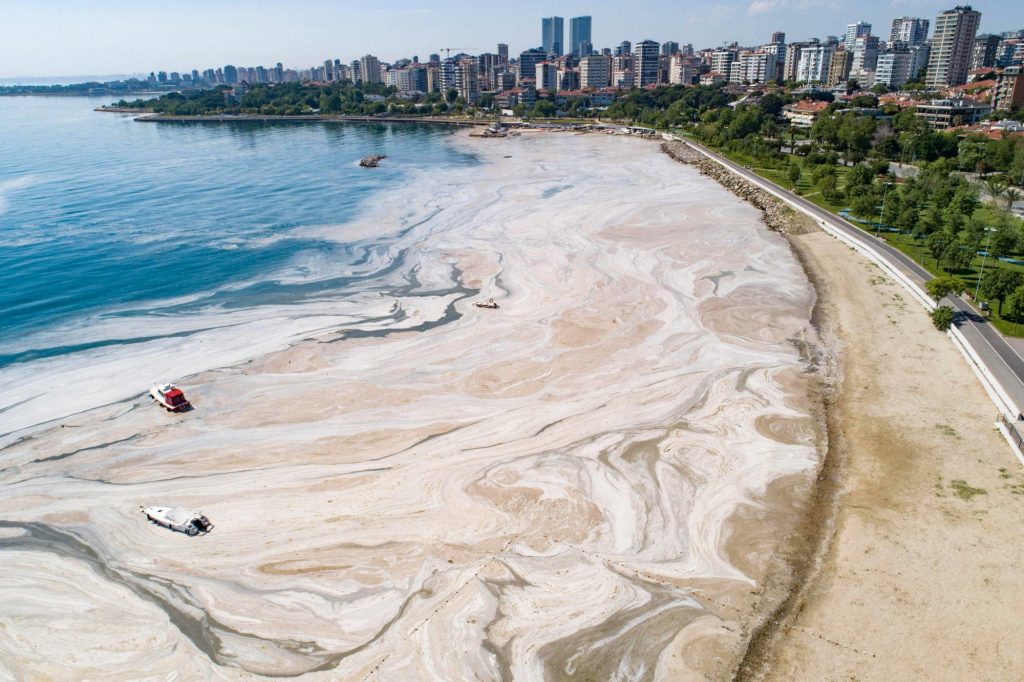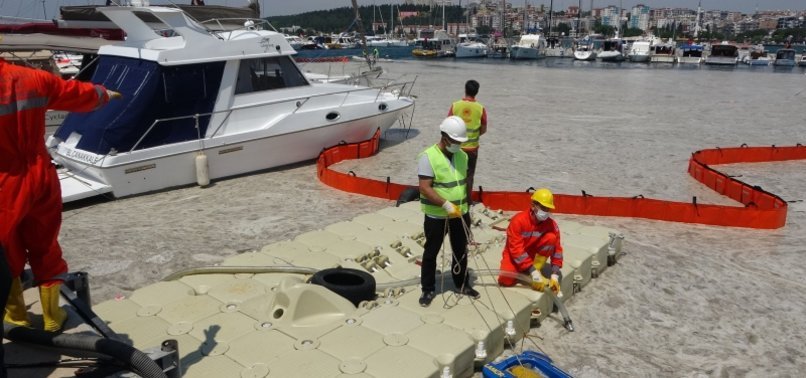

The so-called Mucilage, better known as sea snot or sea salvia, is a thick, slimy substance at and below the water surface. Mucilage seas have been reported in various locations around the world, including the Adriatic Sea, the Sea of Marmara, located near Istanbul, and the Gulf of Mexico. The causes of the phenomenon are an overgrowth of phytoplankton and an increase of phosphorus combined with drought conditions and prolonged warm sea temperatures.
The build-up of mucilage can have negative impacts on the environment and economy of local communities. For one, it reduces the amount of oxygen available in the water and disrupts the food chain in the sea by interfering with the feeding and reproduction of marine organisms. As a result, less productive marine plants will mean less energy is passed to plant-eaters, which will slowly dwindle the population of these grazers for predators to eat up the line. This could lead to a cascade of negative effects for many sea species and the local fishing industry. In addition, the presence of mucilage can be harmful to the local tourism industry, as it may deter visitors who are seeking clean beaches and clear waters.
To address this issue, a multifaceted approach is needed. One important step is to reduce the amount of pollutants entering the sea, through measures such as stricter regulations and better enforcement of existing laws. In addition, scientists are researching ways to control the growth of phytoplankton, such as through the use of natural predators or by introducing other microorganisms that can compete for the same resources.
Educating people about the problem and the importance of protecting the sea is also essential and very important. At this point, our project “Project Ocean” plays an important role. Our goal is to raise awareness of ocean issues to ensure the health and protection of our oceans. This can be done through campaigns, workshops, and other outreach efforts, targeting the public, industry, and the government.
If you want to stay in touch with us, contact us, or follow us on Instagram.
Literature:
Leppard, G., “The characterization of algal and microbial mucilages and their aggregates in aquatic ecosystems”, The Science of the Total Environment 165, 1995, 103-131.
Mantikҫi, M., et al., „Phytoplankton composition and environmental conditions of a mucilage event in the Sea of Marmara”, Turkish journal of biology 34, 2010, 199-210.
Kömüşҫu, A., et al., „An Analysis of Meteorological Conditions in Relation to Occurrence of the Mucilage
Outbreaks in Sea of Marmara, March-June 2021,International Journal of Environment an Geoinformatics 9.3, 2022, 126-145.